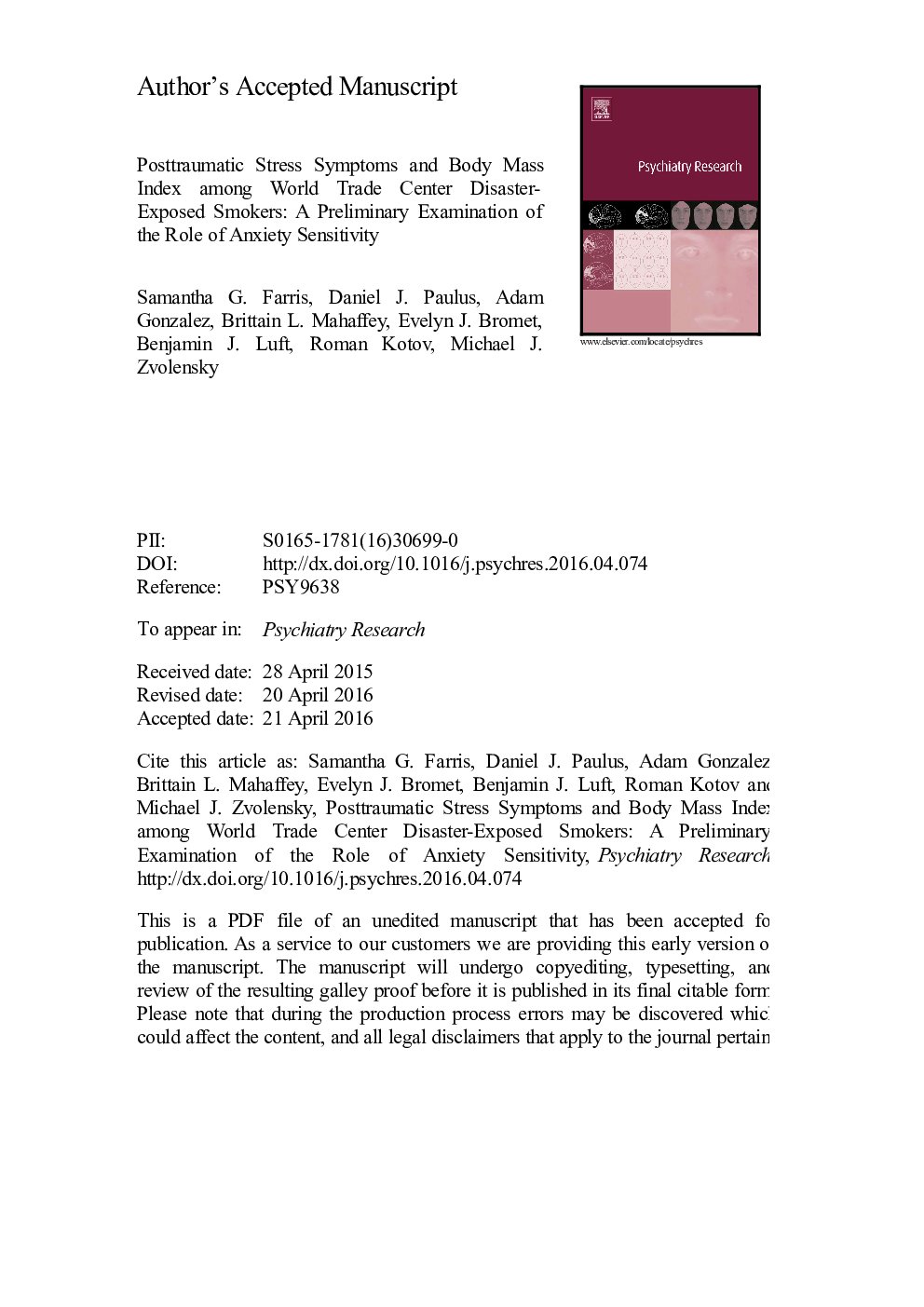| Article ID | Journal | Published Year | Pages | File Type |
|---|---|---|---|---|
| 6813068 | Psychiatry Research | 2016 | 23 Pages |
Abstract
Among individuals exposed to the World Trade Center (WTC) disaster on September 11, 2001, posttraumatic stress disorder (PTSD) and symptoms are both common and associated with increased cigarette smoking and body mass. However, there is little information on the specific processes underlying the relationship of PTSD symptoms with body mass. The current study is an initial exploratory test of anxiety sensitivity, the fear of internal bodily sensations, as a possible mechanism linking PTSD symptom severity and body mass index (BMI). Participants were 147 adult daily smokers (34.0% female) exposed to the WTC disaster (via rescue/recovery work or direct witness). The direct and indirect associations between PTSD symptom severity and BMI via anxiety sensitivity (total score and subscales of physical, cognitive, and social concerns) were examined. PTSD symptom severity was related to BMI indirectly via anxiety sensitivity; this effect was specific to physical concerns about the meaning of bodily sensations. Interventions focusing on anxiety sensitivity reduction (specifically addressing physical concerns about bodily sensations) may be useful in addressing elevated BMI among trauma-exposed persons.
Related Topics
Life Sciences
Neuroscience
Biological Psychiatry
Authors
Samantha G. Farris, Daniel J. Paulus, Adam Gonzalez, Brittain L. Mahaffey, Evelyn J. Bromet, Benjamin J. Luft, Roman Kotov, Michael J. Zvolensky,
